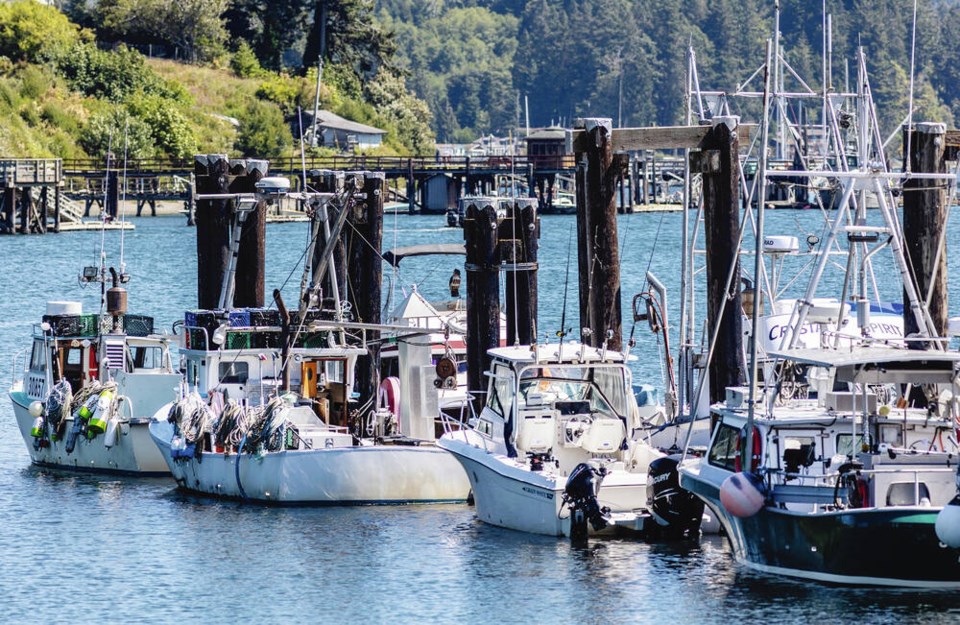A commentary by the executive manager of the Deep Sea Trawlers Association of British Columbia.
Re: “Federal minister urged to restrict fishing licences in B.C. to active fishers,” May 22.
While calls for reform in B.C.’s commercial fishing sector are not new, imposing a sweeping, one-size-fits-all policy would do more harm than good — especially for a fishery as complex, capital-intensive and conservation-driven as the B.C. groundfish trawl industry.
Let’s get one thing straight: this is not the Atlantic. What works for lobster boats on the East Coast does not seamlessly transfer to large-scale, quota-based trawl fisheries operating year-round in the Pacific.
To borrow a phrase from the sewing room, “one size fits all” often fits no one well — and it certainly doesn’t fit the diverse and specialized fisheries along B.C.’s coast.
The trawl sector has spent decades building a world-renowned model of sustainable, science-based fisheries management. Our sector pioneered individual vessel quotas in 1997, operates under strict monitoring, and is governed by total allowable catches aligned with DFO’s precautionary approach.
These aren’t speculative investments — they’re long-term commitments backed by infrastructure, research partnerships, and millions of dollars of both corporate and individual cooperative investments made by Canadian-owned companies and independent fishers.
Contrary to claims of unchecked foreign corporate control, foreign ownership in the Pacific commercial fishing fleet is less than three per cent, according to DFO’s own data.
Our trawl vessels aren’t floating hedge funds — they’re advanced offshore platforms requiring certified crew, specialized gear, and robust financial backing. Strategic partnerships, including with processors, are not only common — they’re necessary to maintain economic viability, especially as the sector faces record-low margins and a 35% drop in active vessels since 2020.
Calls to mimic Atlantic-style owner-operator rules ignore how drastically different our operations are. Trawl fisheries handle multiple species from differing management areas with precision, requiring in-season quota trades to ensure sustainability and compliance.
Introducing rigid fleet separation and ownership restrictions would harm the backbone of our fleet — its adaptability, financing capacity, and its ability to fish efficiently across a complex quota matrix would be stripped.
Let’s also not forget the infrastructure we help sustain.
Ice plants, offloading stations, and processing facilities on the coast already hang by a thread.
A disruption in year-round volume from trawl would mean more than just idle trawl vessels.
It would jeopardize the coastal communities that rely on those processing jobs, the vital local economies they support, and the viability of those infrastructure businesses themselves that would ultimately fail and hinder the opportunity for other commercial fishing sectors whose harvesting is more seasonal to access those critical services.
To put the magnitude of this fishery into perspective, B.C.’s trawl fleet sustainably harvested about 138 million pounds of groundfish in the 2023/2024 season.
According to 2021 data, the sector supported more than 1,180 person-years of employment across fishing, processing, transportation, and distribution in British Columbia, contributing more than $175 million to the provincial economy.
These are real jobs that help sustain rural and coastal communities.
It’s also important to note the contrast with the Atlantic offshore fishery, where corporate ownership of licences is permitted provided companies are at least 51% Canadian-owned.
That exemption allows for greater capital investment and operational flexibility — a model that, if misunderstood or misapplied to B.C., could have serious consequences for our more complex and differently structured fleet.
The Deep Sea Trawlers Association supports ongoing dialogue about fisheries policy, but any modernization effort must be tailored, not templated.
If the objective is fairness, food security, and conservation, then let’s focus on facts and nuanced solutions, not ideological blueprints borrowed from a different coast with a different context.
Let’s have the conversation — but let’s make sure it’s grounded in what makes B.C.’s fisheries distinct, not diminished.



